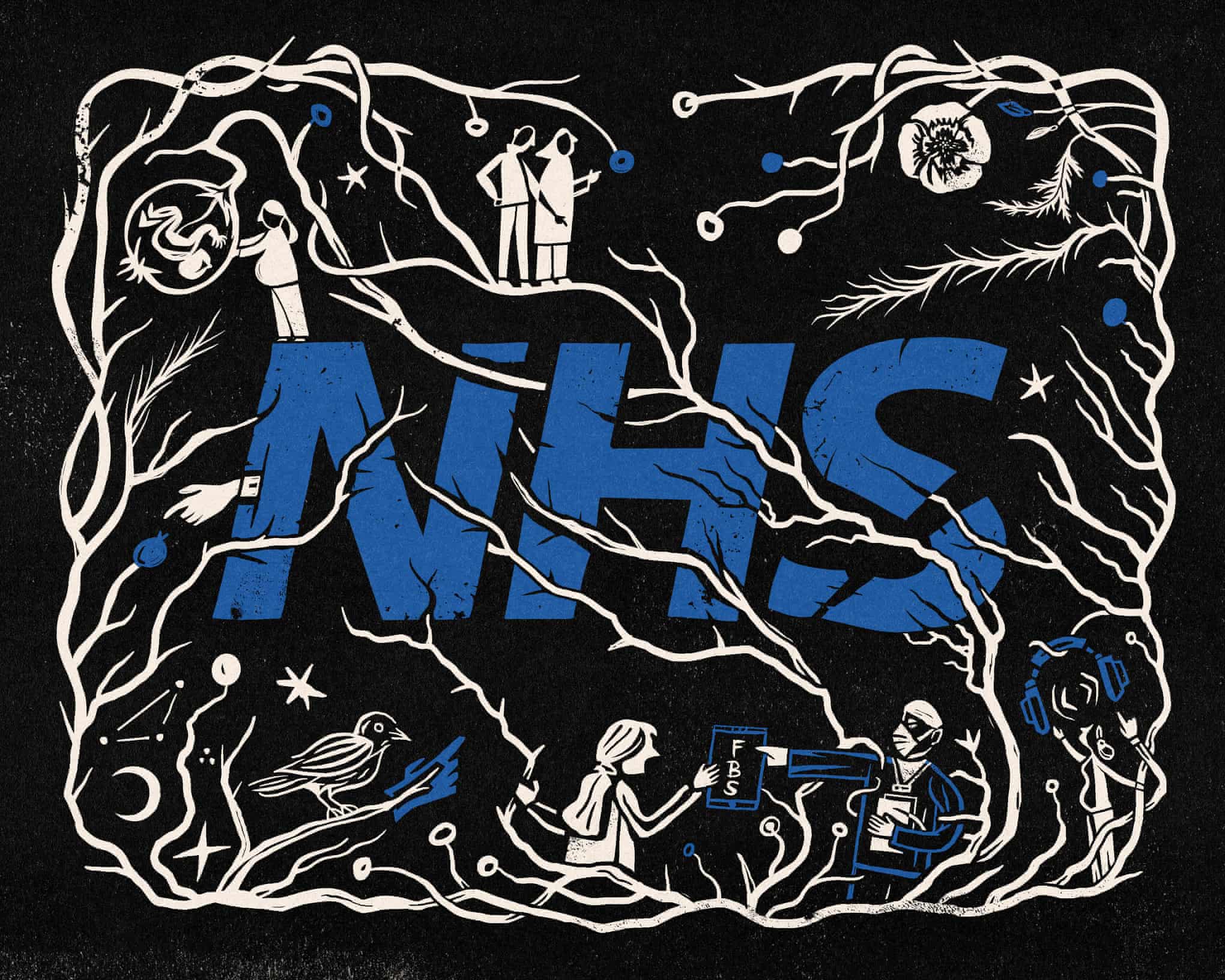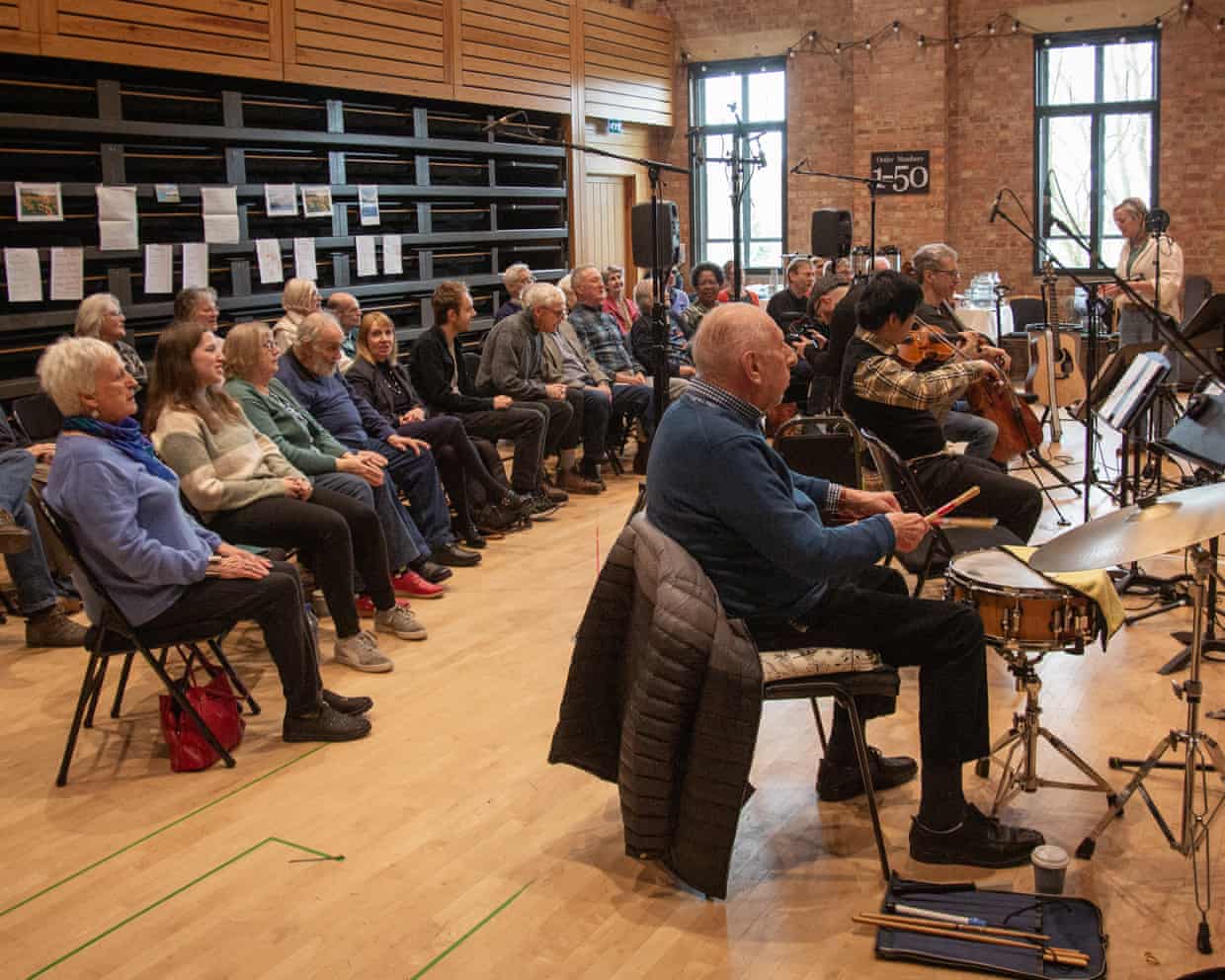North Sea plan permits new drilling on existing fields and no big shifts to clean energy

The energy secretary, Ed Miliband, has returned from the Cop30 climate conference in Brazil, where he championed the UK’s world-leading promise to ban all new oil and gas licences and backed the call for a blueprint to “transition away from fossil fuels”.Back at home, the government says it is sticking to its manifesto pledge but plans to allow some new drilling in oil and gas fields that have existing licenses.The North Sea strategy, released on Wednesday alongside the autumn budget, will introduce “transitional energy certificates” that will allow new drilling on or near existing fields.These are called “tiebacks” and will enable a small amount of new fossil fuel extraction.The government argues that this will help ensure they remain economically viable and are managed for the entirety of their lifespan.
Environmental campaigners say this will result in a relatively low amount of fossil fuel extraction,Tessa Khan, the executive director of the environmental nonprofit Uplift, said: “This government is right to end the fiction of endless drilling,The North Sea is an ageing basin, with most of the gas already burned, and new licensing will do nothing to stem the decline in jobs,“We now need this government to be bolder – to make sure the jobs and wealth generated from the shift to clean energy reach UK workers and communities, and to ensure we maintain a livable climate,That means a proper plan for workers and an end to all new fields, including the huge Rosebank oilfield.
”Analysis from Uplift, based on NSTA (North Sea Transition Authority) and Rystad data, shows that new discoveries within a 30-mile (50km) radius of existing production sites contain just 25m barrels of oil and another 20m barrels’ worth of oil equivalent in gas.For context, the Rosebank oilfield – a decision on which is due imminently – would involve the extraction of nearly 500m barrels of oil and gas-equivalent over the course of its lifetime.In the budget, the chancellor, Rachel Reeves, announced that fuel duty had been frozen until next September after a campaign from the Sun newspaper and rightwing MPs.The tax was designed to increase by 1p plus the rate of inflation annually, to incentivise drivers to use greener forms of transport.However, since 2010, every chancellor has kept rates frozen which, according to the Social Market Foundation (SMF), has meant the real value of fuel duty has tumbled and the equivalent of 81p in 2010 terms is now worth 53p today.
The 15-year freeze has cost the exchequer more than £130bn, it is estimated.Research from the SMF has found the freeze saves the richest households, who tend to drive larger cars, considerably more than it does the poorest, who are far less likely to own a car.It also fails to incentivise switching to electric vehicles or public transport.This needs to happen if the UK is to meet net zero goals; domestic transport is the most emitting sector, accounting for 28% of total domestic emissions in the UK.The government will also introduce a tax on EVs and plug-in hybrids.
The rate will be 3p per mile and increase annually with inflation.The average EV driver doing 8,500 miles a year will face an extra £255 in the first year, according to estimates from the Office for Budget Responsibility.Colin Walker, the head of transport at the Energy and Climate Intelligence Unit, said: “Having already increased the vehicle excise duty on EVs, and given in to industry lobbying by weakening its EV sales targets, the government risks sending mixed signals and undermining consumer confidence by trying to encourage drivers into EVs with one policy and possibly putting them off with another.The net result could be to keep people stuck in dirtier and more expensive petrol cars for longer.”Reeves will be moving green levies from bills to general taxation.
This will remove about £2,3bn a year from bills from April for three years, which will save the average household about £150 a year,Greenpeace UK’s head of politics, Ami McCarthy, said: “Shifting most green levies into general taxation is great news for bill payers and will fund long-term bill-saving schemes far more fairly,”It will be paid for by scrapping the ECO (energy company obligation) scheme, which paid for energy efficiency upgrades for the poorest households, although it has been criticised for being poorly executed and Reeves said it had cost some households more than they had saved,Sign up to Down to EarthThe planet's most important stories.
Get all the week's environment news - the good, the bad and the essentialafter newsletter promotionLabour has faced pressure on energy bills after Miliband promised during last year’s general election campaign to lower bills by £300 a household by the end of this parliament.The large costs to upgrade the electricity grid, to ensure new renewables can be connected, as well as the rising costs of building renewables, has meant this has been impossible to do without removing levies from bills.These pay for things such as insulation for poorer households and the warm homes discount for those who find it hard to pay bills.Andy Hackett, a senior policy adviser at the Centre for Net Zero, said: “Cutting levies on electricity is welcome and overdue, but it can’t come at the cost of cutting the very investments in homes that help make bills fall for good – especially for those in fuel poverty.The knock-on impact on Labour’s warm homes plan could leave them spending less on home upgrades than the previous government, despite repeatedly blaming them for a record of underinvestment.
You can’t build a modern, clean energy superpower on old housing stock,The government should not backtrack on its warm homes plan, especially for fuel-poor households,”While oil and gas companies lobbied hard for the government to remove the windfall tax introduced by the Conservatives in 2022, Reeves resisted this,She said the energy profits levy will remain until 2030, and will raise £2,7bn in 2025-26.
In a sign of the slow demise of the North Sea basin, this is 40% less than will be raised in 2024-25.McCarthy said: “Holding firm on the oil and gas windfall tax, despite fierce industry lobbying, will also continue to support the transition to clean energy.”Mike Childs, the head of policy at Friends of the Earth, commenting on the absence of polluter-pays taxes, said: “The government has missed a golden opportunity to make the biggest polluters pay for the damage they cause – a move that would curb pollution and help fund real solutions.They should have introduced progressive measures like a frequent-flyer levy and used the money raised to boost much depleted bus services.”

AI could replace 3m low-skilled jobs in the UK by 2035, research finds
Up to 3m low-skilled jobs could disappear in the UK by 2035 because of automation and AI, according to a report by a leading educational research charity.The jobs most at risk are those in occupations such as trades, machine operations and administrative roles, the National Foundation for Educational Research (NFER) said.Highly skilled professionals, on the other hand, were forecast to be more in demand as AI and technological advances increase workloads “at least in the short to medium term”. Overall, the report expects the UK economy to add 2.3m jobs by 2035, but unevenly distributed

‘It’s hell for us here’: Mumbai families suffer as datacentres keep the city hooked on coal
As Mumbai sees increased energy demand from new datacenters, particularly from Amazon, the filthiest neighbourhood in one of India’s largest cities must keep its major coal plantsEach day, Kiran Kasbe drives a rickshaw taxi through his home neighbourhood of Mahul on Mumbai’s eastern seafront, down streets lined with stalls selling tomatoes, bottle gourds and aubergines–and, frequently, through thick smog.Earlier this year, doctors found three tumours in his 54-year-old mother’s brain. It’s not clear exactly what caused her cancer. But people who live near coal plants are much more likely to develop the illness, studies show, and the residents of Mahul live a few hundred metres down the road from one.Mahul’s air is famously dirty

One in four unconcerned by sexual deepfakes created without consent, survey finds
One in four people think there is nothing wrong with creating and sharing sexual deepfakes, or they feel neutral about it, even when the person depicted has not consented, according to a police-commissioned survey.The findings prompted a senior police officer to warn that the use of AI is accelerating an epidemic in violence against women and girls (VAWG), and that technology companies are complicit in this abuse.The survey of 1,700 people commissioned by the office of the police chief scientific adviser found 13% felt there was nothing wrong with creating and sharing sexual or intimate deepfakes – digitally altered content made using AI without consent.A further 12% felt neutral about the moral and legal acceptability of making and sharing such deepfakes.Det Ch Supt Claire Hammond, from the national centre for VAWG and public protection, reminded the public that “sharing intimate images of someone without their consent, whether they are real images or not, is deeply violating”

Can’t tech a joke: AI does not understand puns, study finds
Comedians who rely on clever wordplay and writers of witty headlines can rest a little easier, for the moment at least, research on AI suggests.Experts from universities in the UK and Italy have been investigating whether large language models (LLMs) understand puns – and found them wanting.The team from Cardiff University, in south Wales, and Ca’ Foscari University of Venice concluded that LLMs were able to spot the structure of a pun but did not really get the joke.An example they tested was: “I used to be a comedian, but my life became a joke.” If they replaced this with: “I used to be a comedian, but my life became chaotic,” LLMs still tended to perceive the presence of a pun

Civil liberties groups call for inquiry into UK data protection watchdog
Dozens of civil liberties campaigners and legal professionals are calling for an inquiry into the UK’s data protection watchdog, after what they describe as “a collapse in enforcement activity” after the scandal of the Afghan data breach.A total of 73 academics, senior lawyers, data protection experts and organisations including Statewatch and the Good Law Project, have written a letter to Chi Onwurah, the chair of the cross-party Commons science, innovation and technology committee, coordinated by Open Rights Group, calling for an inquiry to be held into the office of the information commissioner, John Edwards.“We are concerned about the collapse in enforcement activity by the Information Commissioner’s Office, which culminated in the decision to not formally investigate the Ministry of Defence (MoD) following the Afghan data breach,” the signatories state. They warn of “deeper structural failures” beyond that data breach.The Afghan data breach was a particularly serious leak of information relating to individual Afghans who worked with British forces before the Taliban seized control of the country in August 2021

Meet the AI workers who tell their friends and family to stay away from AI
When the people making AI seem trustworthy are the ones who trust it the least, it shows that incentives for speed are overtaking safety, experts sayKrista Pawloski remembers the single defining moment that shaped her opinion on the ethics of artificial intelligence. As an AI worker on Amazon Mechanical Turk – a marketplace that allows companies to hire workers to perform tasks like entering data or matching an AI prompt with its output – Pawloski spends her time moderating and assessing the quality of AI-generated text, images and videos, as well as some factchecking.Roughly two years ago, while working from home at her dining room table, she took up a job designating tweets as racist or not. When she was presented with a tweet that read “Listen to that mooncricket sing”, she almost clicked on the “no” button before deciding to check the meaning of the word “mooncricket”, which, to her surprise, was a racial slur against Black Americans.“I sat there considering how many times I may have made the same mistake and not caught myself,” said Pawloski

CPS to train staff on ‘spectrum of abuse’ in violence against women and girls

Ministers urged to apologise after review finds systemic failures led to carer’s allowance crisis

What is prostate cancer and how is it diagnosed in the UK?

NHS directed pregnant women to controversial Free Birth Society via charity

UK charity records original music by people living with dementia

DWP to reassess hundreds of thousands of cases in carer’s allowance scandal